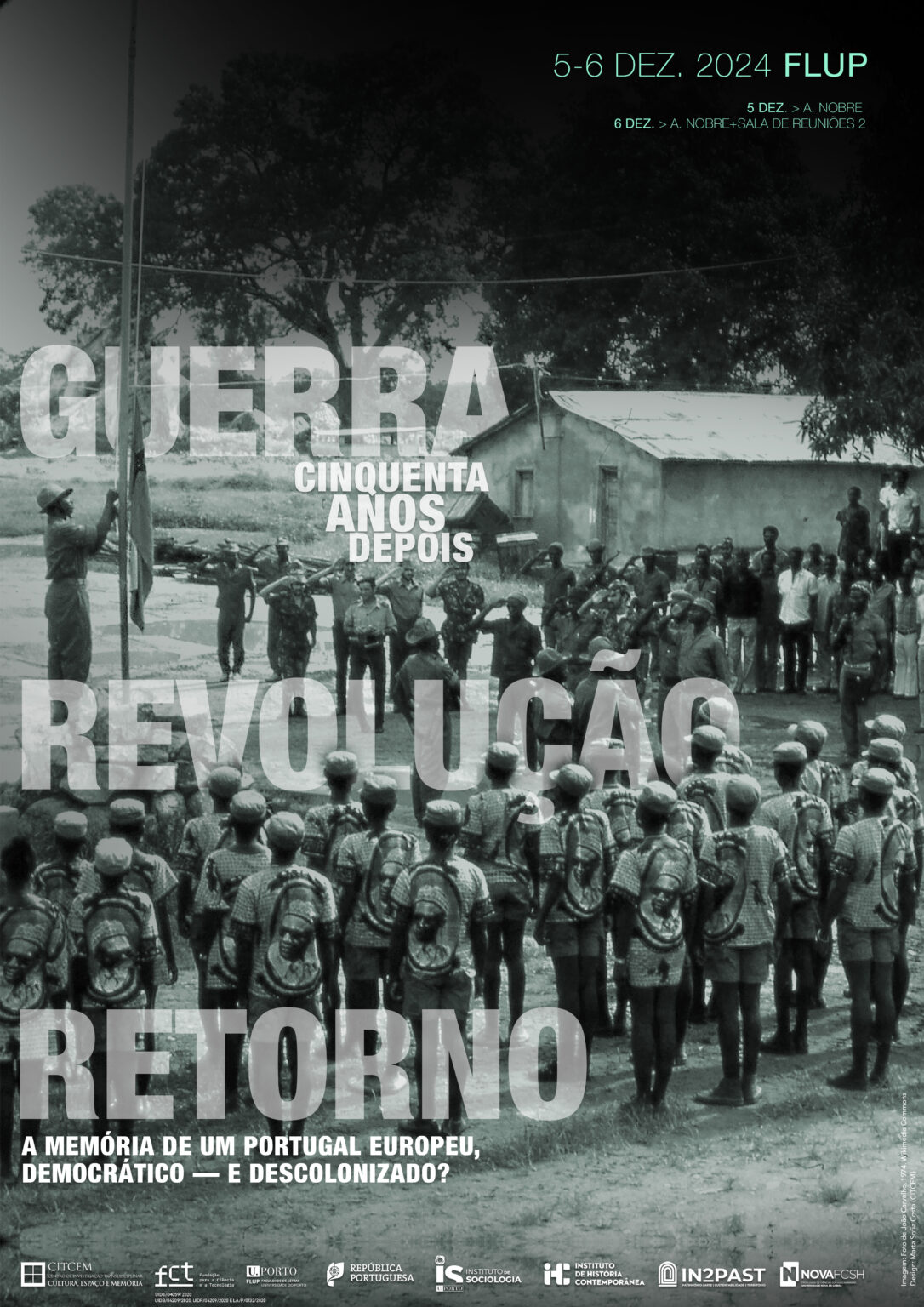Conference "War, Revolution and Return: 50 years later, the memory of a European, democratic - and decolonised? - Portugal"
5-6 December 2024 | FLUP
The fiftieth anniversary of the last democratic transitions in Western Europe (Portugal, Spain and Greece) comes at a present time characterised by an unprecedented, at least for many decades, anti-democratic wave and by the systematic challenge of some of the social, political and economic assumptions that characterised democracy since the end of the World War II amongst which were the effective recognition of the right to self-determination and the political and moral demand for decolonisation. The public discussion, with an inevitable political dimension, which presently surrounds the significance of the 25 April 1974, attests that the passage of time alone does not translate into a consensual interpretation of historical change. On the other hand, it emphasises how relevant a rigorous academic debate is, supported by broader historiographical research and critical analysis.
Such debate and research are the more urgent, considering that simplistic narratives are still dominating and influencing the present-day political discussion as we commemorate the fiftieth anniversary of the Carnation Revolution. Such narratives have been incapable of a more profound and long-term analysis of what were, are, and will remain in the future, the significant transformations unleashed by the military movement put forward by the Movement of the Armed Forces (MFA) in 1974. By 2024, much of the public debate remains focused on commemorative or depreciative arguments, ignoring much of how today’s democratic Portugal was and is shaped by the violence of what has been described as a different (“lusotropical”) colonisation; the violence of thirteen years of Colonial War, with its profound consequences; a biennium (1974-1976) of unprecedented transformations in the Portuguese contemporary history (social, political and economic revolution, and the end of colonial rule); a complex decolonisation, generating new nations and returns; the effective end of five centuries of imperial history; the return of thousands of settlers and veterans, and their processes of social and economic (re)integration; and, finally the individual, collective and political memory – a disputed memory of April, the Estado Novo regime [New State], colonialism and the democratic antifascist resistance.
Starting from the need to reflect on the uses of the past, this conference aims to debate the experience, representation and remembrance of violence, emerging both from the Portuguese colonial past and the decolonisation process. Thus, the Colonial War and its crucial role in unleashing the Revolution will be at the centre of the debate by analysing its nature as a disruptive event or a structural continuity and evaluating its interpretation and influence in the former colonial power and former colonies. Finally, the conference intends to discuss the place of the Carnation Revolution in these histories, not only as the catalyser of change but also as the direct consequence of colonial violence and as the foundation of a post-colonial democratic society in permanent tension with its past.
Main topics:
- The Portuguese late colonialism of the 1960s and 1970s, the swan song of the “Civilizing Mission”: economic transformation and “conquering” the population;
- Violence as a legacy: the enduring impact of colonial violence in the Portuguese and African political developments, during and after the Revolution and self-determination;
- The relationship between the Colonial War, the end of the Estado Novo and the Carnation Revolution;
- 25 April 1974, from Africa to Carmo: the prominence of Africa and colonial past in Portuguese affairs;
- Colonial legacies and memories for the democratic posterity: veterans, returnees. Social, economic and political (re)integration in a revolutionary context;
- Three parallel dimensions of memory: memory of the War, memory of the Revolution, and memory of decolonisation and self-determination;
- The political and historical narratives of the Portuguese democratic regime, namely regarding colonialism, the end of the empire and the end of the Estado Novo;
- The end of empire and Europe: Portuguese European integration and new national identities;
- Portugal viewed from Africa: the former colonies' perspective;
- The relationship with the independent countries: colonial legacy in Portugal and Africa;
Registration fees will not be charged.

Page created on: 2025-06-21 at 02:37:13 | Acceptable Use Policy | Data Protection Policy | Complaint Portal